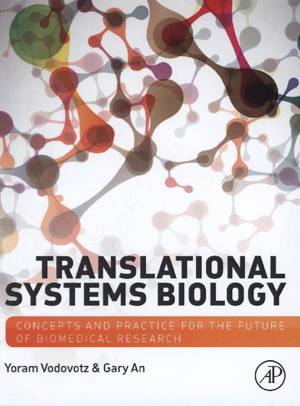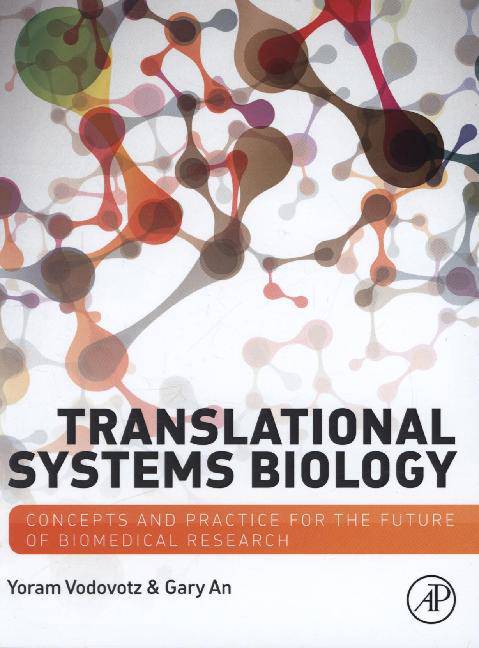
- Retrait gratuit dans votre magasin Club
- 7.000.000 titres dans notre catalogue
- Payer en toute sécurité
- Toujours un magasin près de chez vous
- Retrait gratuit dans votre magasin Club
- 7.000.0000 titres dans notre catalogue
- Payer en toute sécurité
- Toujours un magasin près de chez vous
Translational Systems Biology
Concepts and Practice for the Future of Biomedical Research
Yoram Vodovotz, Gary AnDescription
Are we satisfied with the rate of drug development? Are we happy with the drugs that come to market? Are we getting our money's worth in spending for basic biomedical research?
In Translational Systems Biology, Drs. Yoram Vodovotz and Gary An address these questions by providing a foundational description the barriers facing biomedical research today and the immediate future, and how these barriers could be overcome through the adoption of a robust and scalable approach that will form the underpinning of biomedical research for the future. By using a combination of essays providing the intellectual basis of the Translational Dilemma and reports of examples in the study of inflammation, the content of Translational Systems Biology will remain relevant as technology and knowledge advances bring broad translational applicability to other diseases.
Translational systems biology is an integrated, multi-scale, evidence-based approach that combines laboratory, clinical and computational methods with an explicit goal of developing effective means of control of biological processes for improving human health and rapid clinical application. This comprehensive approach to date has been utilized for in silico studies of sepsis, trauma, hemorrhage, and traumatic brain injury, acute liver failure, wound healing, and inflammation.
Spécifications
Parties prenantes
- Auteur(s) :
- Editeur:
Contenu
- Nombre de pages :
- 178
- Langue:
- Anglais
Caractéristiques
- EAN:
- 9780123978844
- Date de parution :
- 10-10-14
- Format:
- Livre relié
- Format numérique:
- Genaaid
- Dimensions :
- 216 mm x 276 mm
- Poids :
- 679 g

Les avis
Nous publions uniquement les avis qui respectent les conditions requises. Consultez nos conditions pour les avis.






